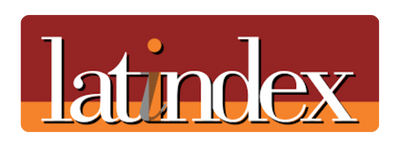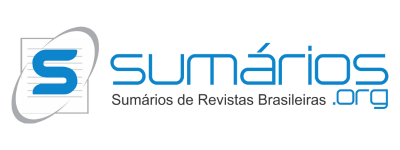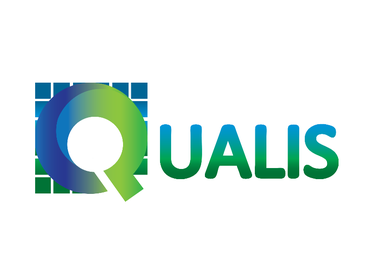Policies
EDITING POLICIES
THEMATIC EDITION
The thematic edition is organized by one or more researchers specializing in the theme of the call. For this section, original articles relevant to the proposed theme are accepted. The theme is announced on the journal's website and social media, including the names of the editors, the topic, a synopsis of the issue, and the deadline for manuscript submission. Submissions for this section are open to students and/or faculty members affiliated with national or international higher education and research institutions, as well as independent professionals.
Proposals for thematic editions can be submitted via email to: ceeinter01@gmail.com or atendimento@ceeinter.com.br.
OPEN EDITION
The open edition accepts texts on a rolling basis and is open to the submission of original works, including articles, interviews, reviews, and experience reports. Students and/or faculty members affiliated with national or international higher education and research institutions, as well as independent professionals, may submit works for this section.
REJECTION POLICY
The rejection of submissions to the Journal of Interdisciplinary Studies may occur at any of the following stages:
1. Initial Evaluation: Submissions that do not comply with the journal's guidelines and template will be rejected in the preliminary analysis, and authors will be notified to adjust their work accordingly.
2. Similarity and Plagiarism Check: Submitted works may be subjected to plagiarism detection software at any stage. If plagiarism or self-plagiarism is identified, authors may receive inquiries during the review process, or the submission may be archived.
3. Peer Review: If peer reviewers indicate the need for substantial revisions and/or the work lacks theoretical and methodological organization, the submission will be rejected.
The Editorial Board of the Journal of Interdisciplinary Studies emphasizes the importance of a rigorous review process to ensure high academic quality in all contributions. Authors should acknowledge that this procedure is integral to our journal, recognizing that, while no system is infallible, we are committed to upholding the highest standards of excellence in our evaluation process.
ANTI-PLAGIARISM POLICY
Before being sent for editorial review, to external reviewers, or at any stage of the editorial process, articles submitted to the Journal of Interdisciplinary Studies will be checked using plagiarism detection software. Authors must ensure the originality of their manuscripts. If any issues are flagged by the software, authors may receive inquiries during the evaluation process. If plagiarism is confirmed, the manuscript will be returned to the author, and the submission will be rejected. The Journal of Interdisciplinary Studies uses Plagius software for plagiarism detection.
OPEN ACCESS POLICY
The Journal of Interdisciplinary Studies offers free and immediate access to its content, following the principle that such accessibility fosters greater global democratization of knowledge.
We recommend reading the article Scientific Communication and the Open Access Movement in Scientific Knowledge, by Suzana Pinheiro Machado Mueller, published in the Revista de Ciência da Informação, for a deeper understanding of the topic.
RIVACY POLICY
The personal data (names and addresses) provided to the Journal of Interdisciplinary Studies will be used exclusively for the services offered by this publication and will not be shared for other purposes or with third parties. This is in compliance with Law No. 13.709, of August 14, 2018, known as the General Data Protection Law (LGPD), as stipulated in Articles 3 and 23.
DIGITAL PRESERVATION (UNDER IMPLEMENTATION)
The Journal of Interdisciplinary Studies is committed to ensuring continuous and long-term access to its content. To support digital preservation, in case of unforeseen issues with our servers, we maintain a secure backup in collaboration with the Cariniana Network, using the LOCKSS program.
LOCKSS operates as a distributed archiving system involving multiple collaborating libraries. This system allows these libraries to create permanent archives of our journal, ensuring full preservation of its content and the ability to restore it if necessary. This initiative reinforces our commitment to long-term accessibility and knowledge preservation.
RETRACTION POLICY
The Journal of Interdisciplinary Studies follows the Committee on Publication Ethics (COPE) Retraction Guidelines.
Reports indicating issues in a published work, regardless of their significance, will be thoroughly reviewed by the editors. Detailed information should be submitted to the Editor-in-Chief's email (see Contact section). If the allegations are confirmed, editors may request authors to correct specific errors or consider retracting the publication. Authors contributing to the journal agree to make necessary corrections when requested.
A publication may be retracted if:
- Authors refuse to correct errors when requested by the editors.
- There is clear evidence that the research results are unreliable due to substantial error, fabrication (e.g., data falsification), or manipulation (e.g., image tampering).
- Cases of plagiarism, self-plagiarism, or redundant publication are detected.
- Research results were previously published elsewhere without proper citation, editorial notification, republication permission, or justification.
- The publication contains unauthorized materials or information.
- Copyright infringement or other significant legal issues arise (e.g., use of images without permission).
- The research involves unethical practices.
- The publication is based on a compromised or manipulated peer review.
- Authors fail to disclose a relevant conflict of interest that, in the editors' view, might have influenced the manuscript’s interpretations or the editorial/review decisions.
A retraction will not be considered if:
- There is a dispute over authorship, but the research findings remain valid.
- The primary research findings are still reliable, and an error correction is sufficient.
- Editors lack conclusive evidence to justify retraction or are awaiting additional institutional investigation.
- An undisclosed conflict of interest emerges post-publication but does not significantly influence the article’s interpretations or conclusions.
Correction or retraction notices must:
- Be linked to the retracted publication.
- Clearly identify the corrected or retracted article.
- Be explicitly labeled as a correction or retraction.
- Be published immediately to minimize harmful effects.
- Be freely accessible to all readers.
- Identify who is issuing the correction or retraction.
- Provide a justification for the correction or retraction.
- Be objective, fact-based, and avoid inflammatory language.
The Journal of Interdisciplinary Studies also adheres to the Guide for Retraction Registration and Publication.
ADVERTISING POLICY OF THE REVISTA DE ESTUDOS INTERDISCIPLINARES
General Principles
The Journal of Interdisciplinary Studies is an academic journal committed to the ethical, transparent, and independent dissemination of scientific knowledge. The journal’s advertising policy follows international editorial best practices, including guidelines from indexing databases, ensuring that advertisements do not compromise the scientific and editorial integrity of the publication.
Advertising Criteria
The acceptance of advertisements in the Journal of Interdisciplinary Studies is subject to the following criteria:
- Alignment with the editorial scope: Only content related to academic research, education, science, and innovation will be accepted.
- Transparency and separation from editorial content: Advertisements must be clearly distinguished from scientific articles and must not influence editorial decisions.
- Ethical and regulatory compliance: Advertisements for products or services that violate academic, ethical, or regulatory standards—including predatory publishing practices—will not be accepted.
- No conflict of interest: Advertisements from companies or entities related to the editorial team will be evaluated to prevent conflicts of interest.
Accepted Advertising Formats
The journal accepts advertisements in various formats, provided they meet the established criteria:
- Institutional announcements: Promotion of scientific events, calls for papers, conferences, and academic opportunities.
- Institutional partnerships: Promotion of academic programs, postgraduate courses, and research-related events.
- Academic publications: Advertisement of books, journals, and scientific materials of interest to the academic community.
- Digital advertising: Banners on specific pages of the journal's website, without intrusive ads (e.g., pop-ups or autoplay).
Evaluation and Approval Process
All advertising proposals will be reviewed by the Editorial Board following these procedures:
1. Submission of the advertising proposal with detailed content, format, and display period.
2. Editorial review to ensure compliance with the journal’s policy and indexing database guidelines (e.g., Scopus).
3. Final approval and publication, with a commitment that advertising will not influence the journal’s scientific content.
Financial Transparency Policy
- Any revenue from advertising will be used exclusively for the journal’s maintenance and development, including hosting, indexing, review, and editing services.
- The journal does not accept advertisements from predatory publishers or organizations engaged in unethical publishing practices.
- The journal does not engage in hidden advertising; all sponsored content will be clearly identified.
Policy Review and Updates
This policy will be periodically reviewed to ensure compliance with indexing database requirements and academic editorial standards.












